|
Nowadays, soft skills and emotional intelligence are so important in our social and work context. Concepts like assertive communication, teamwork, empathy, listening, public speaking, conflict and stress management are crucial in our life and we have worked on them during the last week in the course “Soft Skills and Emotional Intelligence for teachers and education staff”. The course took place in Bologna, from 18/09/2022 to 24/09/2022. Participants came from all across Europe, with Tatjana Pintar, Irena Kokalj and Štefan Harkai from three different Slovenian schools: OsnovnašolaGorje, Center šolskih in obšolskihdejavnosti– CŠOD and OŠ Puconci respectively; Mirela Levačić Cvok from Primary School Đure Prejca Desinić in Croatia; Diāna Zurģe, Una Gaile and Toms Akmens from Tukuma Raiņa ģimnāzija in Latvia; Peter Mezei from BGSZC BGSZC Károlyi Mihály Két Tanítási Nyelvű Közgazdasági Technikum in Hungary; Beata Łukomska from Zespół Szkół Specjalnych 110 w Poznań in Poland and Marie Vanden Berghe from Heilig Hart instituut Heverlee in Belgium. During the course we have discussed about many topics. They prepared themselves to the week discussing about their expectations, their contributions and their fears. On the first day, we started talking about the different types of emotional intelligence and empathy, so our participants had to do some very interesting activities. We learned how to create a smart goals and we explored the different styles of leadership. The participants did some activities to learn how to be a good leader for their students. For the purpose of improving their communication skills they also had to prepare exercises of public speaking and listening, focusing on active and passive ways of being in a conversation. They learned to pay attention, to share, to reflect on each other. In summary, having good communication, especially an assertive one may be essential for teamwork, but most of it is non-verbal. We have to consider the three channels through which communication takes place. To put these skills into practice, our participants had to do a group activity in which they had to guide together a colleague to reach a common goal. The last topic of this course was Conflict management. We talked about the different types of conflict and their views. In this activity they could share their own experiences, arguing about it and learning how to deal with them. Finally, to end the course, the participants had to resolve a problem interpreting different point of views, in order to train their skill of understanding their own emotions and the emotions of others. Last but not least, they could enjoy the cultural activities in Italy! The Renaissance in Florence, the canals of Venice, the mosaics of Ravenna, and above all the beauty of Bologna. Without a doubt, they put in very good practice the team work activity! Discover more about this course here Learning how to control emotions in order to better manage stressful situations is the key to improving personal and professional skills in any workplace. Self-awareness is the first step to face daily tasks and to deal with overwhelming situations that are known to cause tension and conflict in professional environments.
During the course meetings the participants had the opportunity to empower their skills through both theory and practical activities, focusing on a high range of topics that went from technical definitions about stress and its main forms to relaxation techniques like breathing exercises, muscle relaxation and visualization. First of all, the participants analyzed the main manifestations of stress on both cognitive and behavioural levels, also learning how to recognize all of its outcomes to exploit them in a positive and productive way. Moreover, they took part in group activities aiming to increase their planning and time management skills in order to avoid time stealers and make the most of their efficiency at work.
In this context, coming from the same working environment was a treasure for this group of co-workers during their whole experience: they had the opportunity to speak up for themselves about important issues that affected their team, finally achieving innovative solutions to turn these problems into new possibilities of growth, both individually and collectively.
Discover more about the course here Bullying is a problem that affects all school levels and it is often difficult to recognize it, because it occurs far from the adults’ sight. However, this course allows us to recognize the characteristics of a bullying behaviour and learn how to prevent and stop it. The new edition of the course “How to stop bullying and cyber bullying in schools and promote social emotional learning” took place in Palermo from 11/09/2022 to 17/09/2022. The participants came from two different countries of Europe, with Sylwia, Patrycja and Adam from Szkoła Podstawowa nr 1 w Tanowie in Poland; and Herwig and Chris from Gemeentelijke Basisschool Kortrijk and School voor buitengewoon onderwijs Sancta Maria in Belgium. 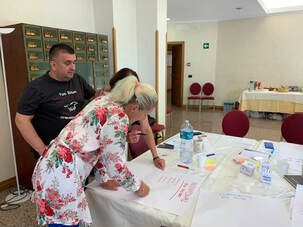 We started with our introduction day where we brainstormed all the characteristics of bullying behaviours, all the differents roles involved and the forms it can take. We moved on talking about the risk factors that lead children to be bullied or to bully others and, at the same time about the factors that can help to prevent these situations. We looked at this topic from four different perspectives: the family environment, the school environment, the individual situation and community environment. The second day of this training course was focused on learning what a conflict is and how to manage it. In order to build a positive classroom environment, teachers should know the best strategy to use to handle a conflict in a specific situation. Through different activities, we also discussed about the opportunities that can arise form a conflict, if we understand how to learn from it. Thanks to the sharing of ideas, we looked at the best practices to use when facing a bullying behaviour and how to integrate them in the school antybullying programs. 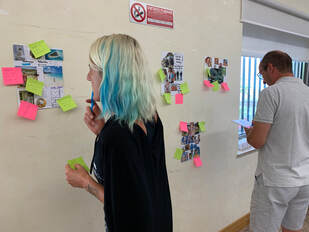 One of the main and most difficult types of bullying to recognize is cyber-bullying. Nowadays Internet has a major role in the lives of our kids and may have a negative impact on them. With some practical activities we explored the world of internet and cyber-bullying. We also discussed about the differences between traditional and cyber bullying and about the things that they have in common. To understand and put ourselves in the shoes of bullying victims we implemented a very useful activity which can be used both with students, parents and teachers to raise awareness. 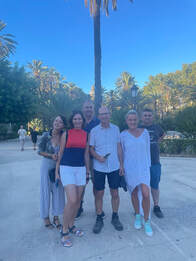 In order to prevent bullying behaviours it is vital to foster a supportive classrom. We looked at this topic form two different perspectives: membership and social emotional learning. These are pillars for a supportive classroom and should not be underestimated. They should be included in every school program, indeed. We discussed about this with a lot of non formal and creative activities and games, thanks to which it was impossible to get bored. Moreover, the participants had the chance to share their valuable ideas and experiences. Discover more about this course here
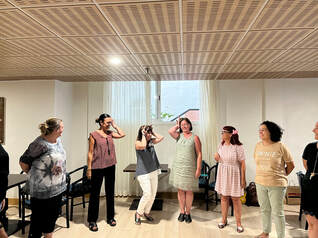 Contemporary society is profoundly diversified and multicultural, which poses many challenges towards teachers and educators in promoting diversity and tolerance in and outside the classroom. As teachers and education staff, we wish for our student to be successful, we would like to help and support them in their personal development skills that they can obtain a proper knowledge to find their best place in the society and allow others to be in it. Starting from the early age in teaching tolerant attitudes and promoting open-minded thinking as well as being a role models in building emphatic characters of children can make a real impact for the whole society. The new edition of the course “Diversity in the classroom: teaching tolerance and overcoming prejudices and discrimination” took place in Tenerife from 11/09/2022 to 17/09/2022. The participants came from all across Europe, with Julia, Jennifer, Kathrin from Sekundarschule Horn Bad Meinberg in Germany, Maria, Cláudia, Helena, Amelia from Agrupamento de Escolas Emídio Navarro in Portugal, Isabella and Cathrine from Manhemsskolan/Kalix kommun in Sweden, participans coming from Finland: Anu and Pia from Kiviniityn koulu in Finland and Stella from Hellenic Open University, and then Cioabă from Secondary School Ion Creanga, Carolina, Sandra, Giuseppina and Anna from IC. “FRANCESCO RISO” in Italy. 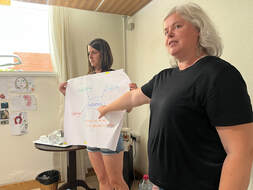 Educators were engaged in a very practical and visual activities to explore the concept of identity. They were asked to draw autoportraits where the first half of it had to present their visible appearance while the other half – their deep personal values and charakter. At the end we discussed the issue of how our identities may effect the perception of the other people, society and build our viewpoints and convictions. The second key step of the cours was how to introduce in the class, promote and encourage children to understand and respect cultural diversity. In order to acknowledge this attitude we were watching a TED talk. It helped us to concern the difference between “being local” and “being from a foreign country” because what is shaping our identity is our whole culture developed in various and interconnected levels. Appreciation of diversity is connected also with the ability to overcome stereotypes. During the course we had an opportunity to duscuss the notion of stereotypes and the purposes of thir existance, we asked ourselves how we form them and when we use them in our everyday life. We could discover both, negative and positive impact of stereotypes using the storytelling technique which helped us to observe how stereotypes evolve into judgments and discrimination What is more, we analyzed very sensitive issue of awareness and respect. By many activities nad simulations we could gain a distant sight and imagine more how our perception of world, as people in general, is influenced by our identity, values we share and culture we live. We participated in critical thinking exercises to understand what means the respect towards other perspectives on world and different values. 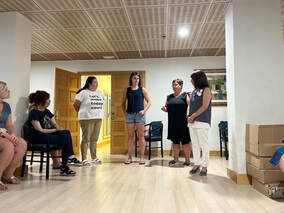 The next part of the course was dedicated to the topic of membership. For the purpose of better understanding of the concept we did exercises focused on exclusion and inclusion. It helped us to recognize how it feels to be excluded and how difficult it is to include into the specific group with its own dynamic. The geese acvitity introduced the topic of leadership styles as a perfect match for this aim. 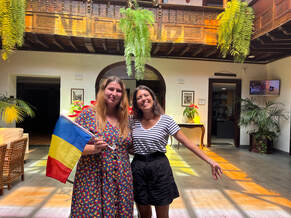 Finally, we could also discover the power of empathy as a soft skill which is crucial and need to be implemented in process of education. We learnt that it is important to be aware and express our own emotions in the proper way as well as be open and sensitive towards the other people feelings. The teachers were fostered to put themselves in other people’s shoes what help them to be aware of the emotions of others. To sum up, it was a bright week full of deep discussions, exchange of ideas and perspectives, when we gained a new knowledge and practice, and could share emotions.
Discover more about this course here Living a stress-free life: how to cope with your human moments in a positive and efficient way9/17/2022 In today’s world it’s easy to feel like we cannot manage our daily tasks. Stressful situations can manifest themselves both in our professional and personal life and without the right tools it’s difficult to overcome them efficiently. In this course the participants had the opportunity, through theory and practical activities, to learn new strategies to help them cope with stress. The new edition of the course “Stress and Conflict Management: the way to resilience and satisfaction” took place in Bologna from 11/09/2022 to 17/09/2022. In this course we welcomed a special group from Ländliche Erwachsenenbildung in Niedersachsen e.V in Germany: Jörg, Simone, Oxana, Kathrin, Sonja, Heide, Heike, Lenka, Janina, Maria, Benita, Ulrike, Luise, Anke, Manuela, Jutta and Lea. On the first day participants reflected on the meaning of the word stress by brainstorming in groups. We learnt more about the stressors from our daily life (either physical, environmental, family-related or work-related) and we managed to distinguish between positive stress (Eustress) and negative stress (Distress). By sharing examples participants realized how adequate amounts of Eustress can indeed lead to positive outcomes in our lives and push us towards our goals. During this course the participants learnt about a series of strategies, both cognitive and behavioural, designed to overcome stressful situations. These strategies can be used both for our personal lives and in the workplace. Participants learned through exercises in pairs to block and reframe their negative thoughts and to accept that it is normal to make mistakes, or even better, “to have human moments”. We also experienced throughout the week guided visualizations, breathing exercises and muscle relaxation. Later we focused on topics such as time management. Learning how to plan our daily tasks and activities is vital in order to avoid feeling overwhelmed. Participants had the chance to learn practical strategies and to play a game in teams that showed them the importance of planning and defining roles. Another topic that was discussed during the course was empathy, which is a fundamental skill when it comes to dealing with conflicts. It is not always natural to come up with an empathic response, but this type of attitude can be practiced and learnt. Learning about different types of responses gives us the opportunity to reflect more on the way we behave in our daily lives and to manage conflicts more responsibly. In order to solve conflicts it is also necessary to know how to communicate effectively and assertively. The participants discovered the different communication styles and were asked to do a group activity in which each member had to contribute in resolving a conflict. Lastly, participants reflected on their own personal values and on how sometimes our actions do not align with them. Being able to understand our own needs and to communicate them effectively is the first step to lead a stress-resilient lifestyle. Since participants came from different professional backgrounds, it was an opportunity for them to confront themselves with each other and learn from their shared experiences. More importantly, this course showed them that not only they have the tools for dealing with stressful situations, but that sometimes there can also be a positive outcome. Discover more about this course here
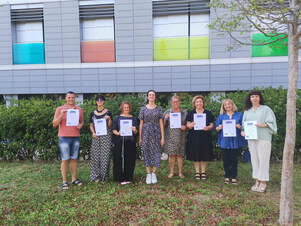 If you were wondering how to support your learners to develop an entrepreneurial mindset as well as leadership skills, we now have the answer! The new edition of the course “Teaching entrepreneurship and leadership at school” took place in Bologna from 28/08/2022 to 03/09/2022. We welcomed there 7 lovely participants. 6 of them were from Greece: Androniki Zouki and Karametou Vasiliki from 9th senior high school of Ioannina, Elisavet Plakida, Vasileios Raptopoulos, Zoi Zografopoulou and Zoi Athanaseli from Arsakeio Primary School of Thessaloniki and then we had Kadri Idavain from Kuusalu Secondary School in Estonia. During the week, the group discovered the key elements and principles related to entrepreneurship and leadership education and acquired concrete working methods, learning activities and didactic games that they will be able to integrate in their course and apply in the classroom. In order to start teaching entrepreneurship to our students it is important to know what we are talking about. What is entrepreneurship? Which are the main skills needed? What are the key words? That is what we did at the beginning of the course: at the end of the first day our participants were able to navigate this topic with more confidence. We also pointed out how important is to have a clear goal in mind and a model when planning our entrepreneurial project: this is why we introduced the topic of SMART goals and the CANVAS business model. With a lot of practice our teachers were able to set their own goals ;) Entrepreneurship could never exist without creativity: this is probably the most important skill to foster in our students. This can be practiced with games, innovative activities and small workshop which we practiced in the classroom. Other skills we practiced were public speaking and assertiveness: only in this way can we become good entrepreneurs and persuade our investors! Lastly, we explored leadership and teamwork, both fundamental for businesswomen and men. The week was concluded with a beautiful poem written by one of our Greek participant:
Doctor Erasmus You have given us your name To use during these days And blow us away Pasta I eat Ham and cheese too But then I weigh myself And say somebody hide me, do! With the weight I have on I have to go shopping too And buy clothes that fit So not to look like a fool If I explode from the food I will be heard in Greece too Because I have to admit I like spaghetti bolognese and tiramisu Cows and bulls appear in my sleep They hunt me down And ask for the bill Pigs wait for me in the street Chickens with eggs, canneloni and cheese Tortellini,ragu Ricotta salata, prosciutto and uff… It feels like a paradise of food On this planet and on others too. And when I die pretty soon Bury me in Bologna, do! I want a vampire to be And eat macaroni with cheese’. OriginalPoet: Androniki Translator and editor: Elsa Typedand savedby: Kadri See you soon! Discover more about this course here 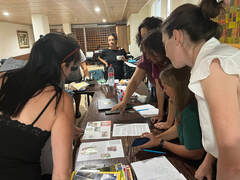 Nowadays it’s necessary to update traditional methods of teaching students. Project-based learning, non-formal education, outdoor education, and ICT are some of the many opportunities that can be integrated with traditional teaching methods. The new edition of the course “Innovative teaching methods for teachers, school and adult education staff” took place in Tenerife from 04/09/2022 to 10/09/2022. The participants came from all across Europe, with Rossana Serranò and Valentina Farneti from the school Terzo Circolo, Claudia De Meo and Simona D’Aquilio from IC Albeto Manzi and Valentina Sarlo from Arci Firenze in Italy; Florentina Anca Bodnărescu, Elena Raveca Contiu and Alina Maria Miuță from Scoala Gimnaziala nr. 3 Cisnadi in Romania; Ondřej Horký from Martino IRS in Slovakia; Nélia Fleury from Lycee Polyvalent Europe Robert Schuman in France. 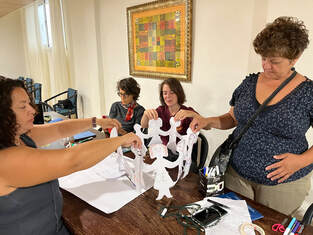 Today there are many tools available that can be used in the school environment. Thanks of this course, our participants could learn how to use outdoor education for personal, social and relational development, get an overview of the trending innovative teaching methods, get acquainted with the key principle of Contextual Learning, practice the most relevant new teaching methods and strategies. Today there are many tools available that can be used in the school environment. To begin with the course, we talked about how to foster student motivation, participation and creativity through non-formal, informal and experiential learning activities. 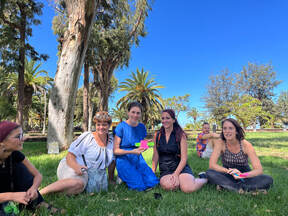 Visual strategies and teambuilding games showed the power of Non-Formal Education. Actually, we explored the Kolb’s experiential learning cycle and the participants learned how it allows to pass from reflection to conceptualization and application, giving the student a proactive role in the process of learning. The teachers with ICT tool’s help could participated in a special type of treasure hunt and thanks of that they could discover Bologna and deepen the power of Outdoor Education in a very funny form. The Outdoor Education has a lot of advantages like increased motivation and creativity, improved psychophysical welfare through the contact with the nature and the consequent reduction of the stress. For the end, we practiced several tools in class about ICT, finding new forms of engagement in the students, evaluate and showcase a lesson. This course helped participants to understand how to work with a more innovative approach in their classes. On Friday it was so hard to say goodbye. However, our participants left with new knowledge and ideas to apply in their countries with their students. Discover more about this course here
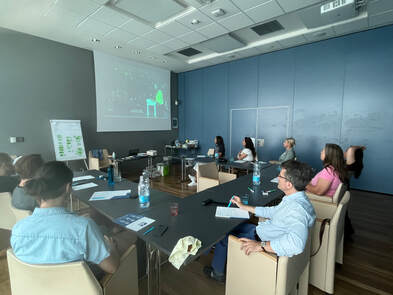 Nowadays, schools and educational programs are welcoming a wide variety of people that come from very different cultural backgrounds. Teachers face a big challenge when it comes to helping their students in adjusting to a new cultural setting while also promoting an open minded environment that values and celebrates diversity. The new edition of the course “Intercultural learning and cultural diversity in the classroom” took place in Bologna from 28/08/2022 to 03/09/2022. The participants came from all across Europe, with Zsuzsanna from Váci SZC Petzelt József Technikum és Szakképző Iskola in Hungary, two teachers coming from Spain, Raquel from IES Fuente Nueva and Pilar from Universidad Loyola Andalucía, Fe and Sunneva from Fellaskóli in Iceland, Georgios from GELDE Sapon in Greece and Tim, Thomas and Isabel, three teachers coming from the same German school Sekundarschule Horn - Bad Meinberg. The course started with acknowledging the importance of reflecting on the meaning of words. The participant altogether tried to come up with a definition for the term “intercultural learning” and of what it means to them. The participants explored the differences between the meaning of intercultural learning on a literal level and on a broader point of view. During the course we worked on the exploring the concept of identity as a first step to dig deeper into cultural diversity. By presenting their home countries, our participants thought about their own identity and the relation that it has with culture. The participants learnt through the use of visual metaphors that everyone’s identity is unique and made of multiple elements: some of them are superficial and easier to understand while others are more difficult to spot and are more deeply rooted in ourselves. Participants were also invited to reflect on how difficult it can be to answer the question “Where are you from?” when you come from a diverse cultural background. The teachers were encouraged to reflect on which places in the world made them feel like locals instead of the country they were born and this exercise sparked an interesting conversation on cultural identity compared to nationality. 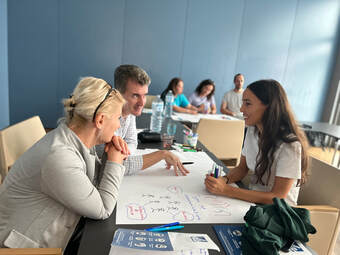 Next, participants engaged in a storytelling exercise about stereotypes. Altogether we discovered the meaning of the vicious cycle of stereotypes. We saw how stereotypes can be dangerous because they tend to become prejudices that later create discrimination. The last topic we worked on was inclusion. First, participants were involved in simulation activities to acknowledge and discuss about the challenges of intercultural communication. The activities can help students questioning common assumptions while thinking about finding connections among different cultures. The teachers engaged in group activities that could also be replicated in their classroom in order to teach their students the importance of membership and empathy. As part of the learning process and the (inter)cultural offer of the course, participants had the chance to meet two representatives of a local association in Bologna dealing with intercultural projects. They were thus given the chance to see Bologna from another perspective, making them even more eager and curious to put the knowledge gained in classroom into action while discovering the city and interacting with our locals. Discover more about this course here
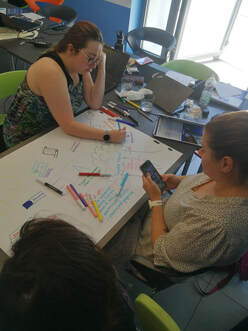 EU funded programmes can be a tough nut to crack. It’s hard to guess which project will get approved, which mandatories to fulfil, and which key to follow. In this course we focus on eliminating this guessing game, and equip you with the necessary knowledge needed to successfully apply for projects. The new edition of the course “Erasmus+ and EU Project Management and Design Training Course” took place in Bologna from 28/08/2022 to 03/09/2022. The participants came from all over Europe, with María Teresa Baena Alcántara, José Moraga Campos, and Francisco R. Merino Mesa from CEP Córdoba in Spain; Sara Mira from Lagos Ciência Viva Science Centre in Portugal; Kristinn Berg Gunnarsson and Anna Eyfjörð Eiríksdóttir from Menntaskólinn á Akureyri in Iceland; and Audur Inga Runarsdottir from the University of Iceland. On Monday we started off with a comprehensive introduction to Erasmus+. We talked about what accreditation is (and how to get it) and how the budget changes. We then moved on to the general objectives of the programme and discussed them individually, to really get a clear idea of the big picture. At the end of the day we introduced the 3 Key Actions of Erasmus+, once again making sure that we spent enough time to understand the differences between them. The trainer put a lot of emphasis on Key Action 2 projects, as these are among the most complex to grasp. We talked a lot about what the cycle of a project should look like, and jumped straight into the Logical Framework Approach. The group discovered necessary tools and methods to use whilst designing a project, with enough time to explore them between moving on to the next topics. Another big concept we tackled was the Work Breakdown Structure, and with that, moving swiftly into creating Work Packages. The participants learned the importance of managing the Communication of the project - more specifically the difference between visibility and dissemination. We took time for each member of the group to analyse their target groups, where they can implement an active communication strategy, and how to make these actions verifiable. To finish the week off, we touched on other EU funded programmes, like The European Regional Development Fund, Creative Europe, Horizon 2020, CERV, LIFE, and more. We also presented helpful tools for project management, to eliminate the chaos of working with multinational partners. All in all, although we had a lot of theory, the course was very practical. We were happy to help our participants with their projects directly, and we hope for their smooth implementation! And who knows, maybe we will meet again as project partners in the future :)
Discover more about this course here |
Welcome to the ELA Blog. Here you will find articles and photos of our courses and have a look at the topics addressed during the week in Bologna, Palermo and Tenerife. You will also have the chance to take a peek at our projects and check out what we have been up to.
Archives
July 2024
Categories |
-
Course catalogue
- 2023-2024 course catalogue
- Soft Skills >
- ICT and New Technologies >
- Inclusion and Diversity >
-
Innovative Teaching Methods
>
- Innovative teaching methods discovery
- Non-formal education teaching methods
- Dual education and work-based learning
- Teaching leadership and entrepreneurship
- Project based learning
- Game based learning and gamification
- Green skills
- Outdoor education
- Outdoor education trekking edition
- Promoting creativity and critical thinking
- Languages and EU projects >
- Preschool >
- Erasmus Plus KA1
- What we do
- About us
- Locations
- Blog
- Contact us
 English
English български
български Čeština
Čeština Español
Español Français
Français ελληνικά
ελληνικά Italiano
Italiano Polski
Polski Português
Português Română
Română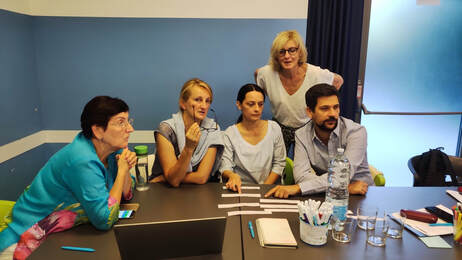
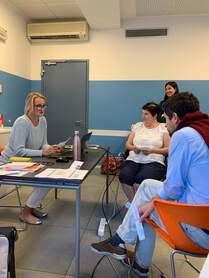
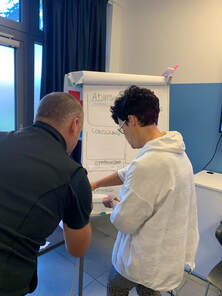
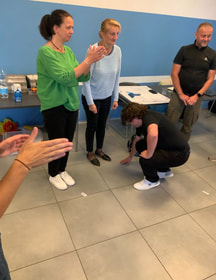
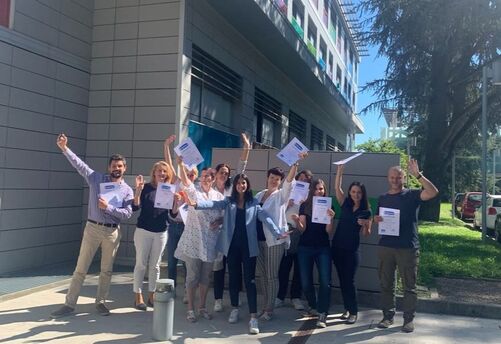
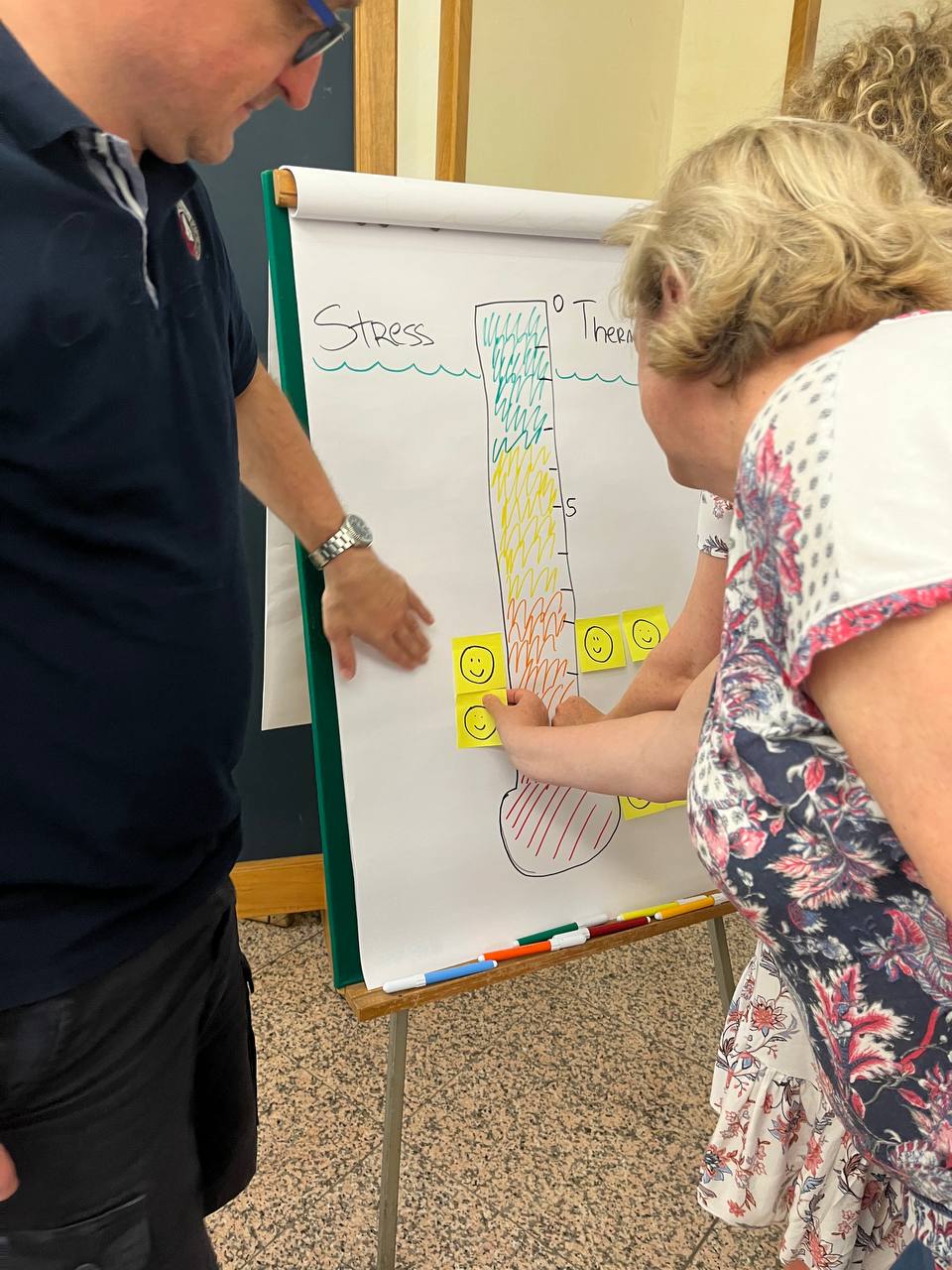
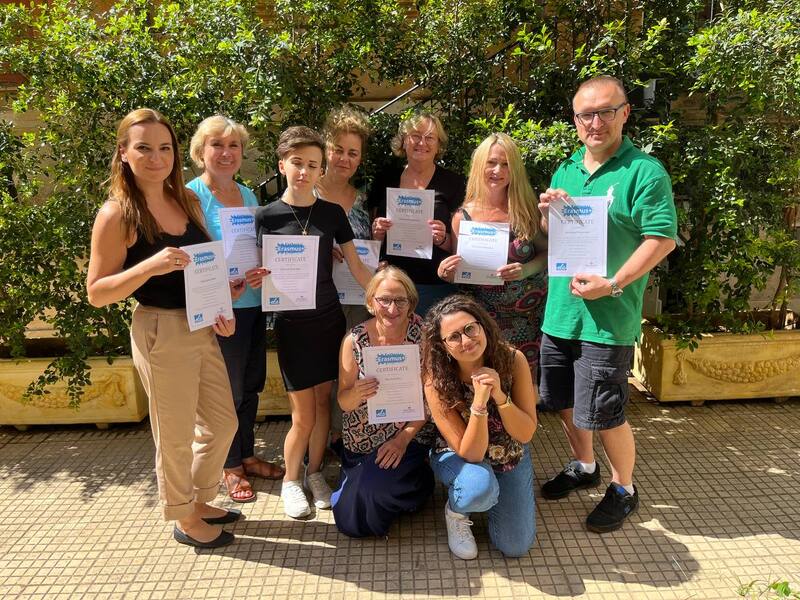
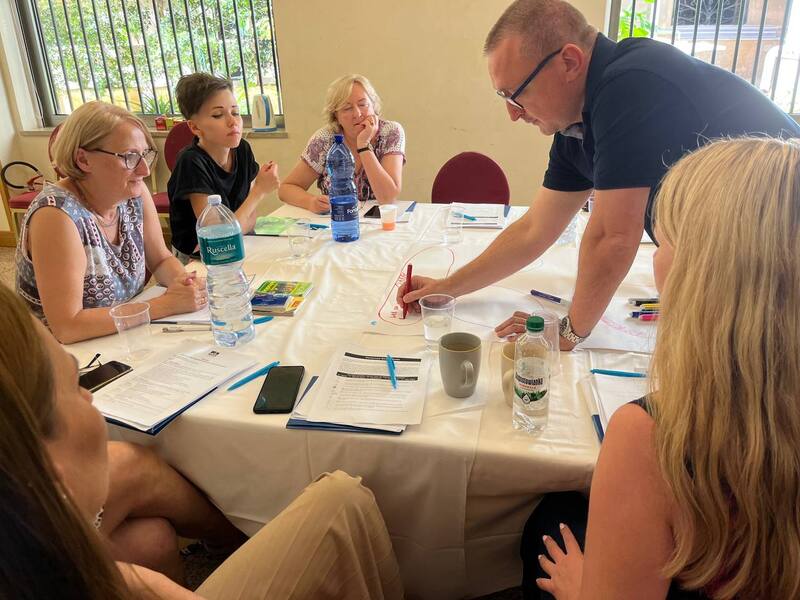
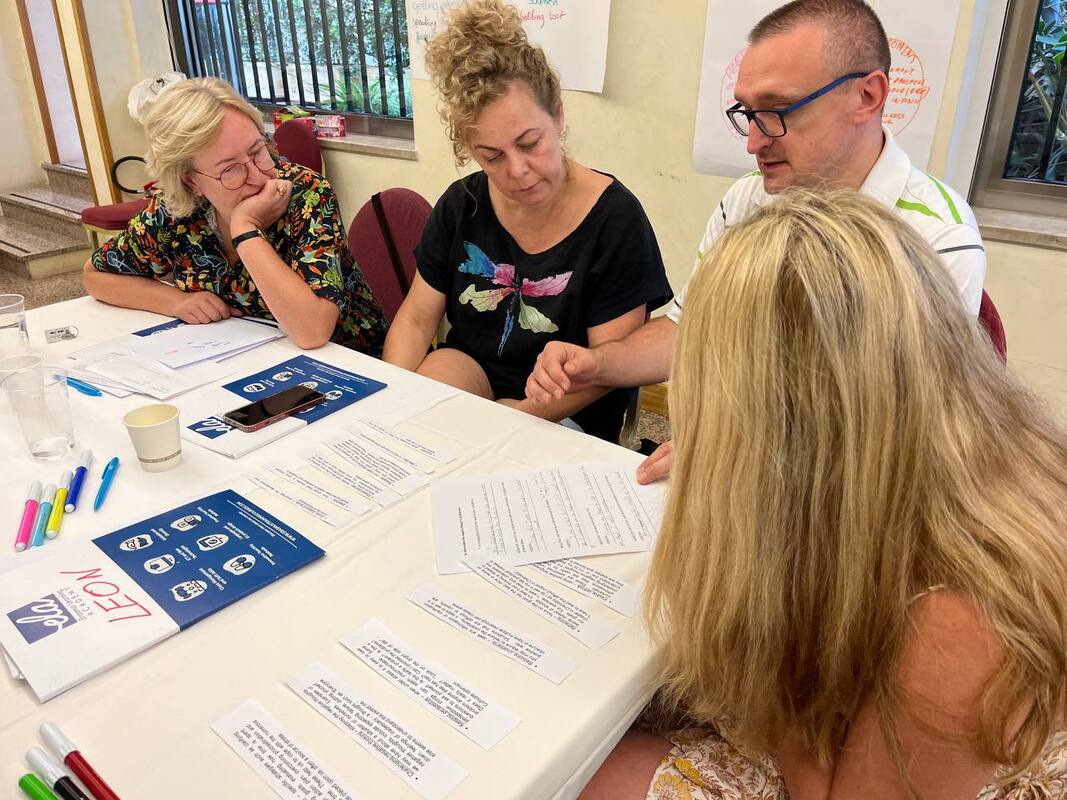
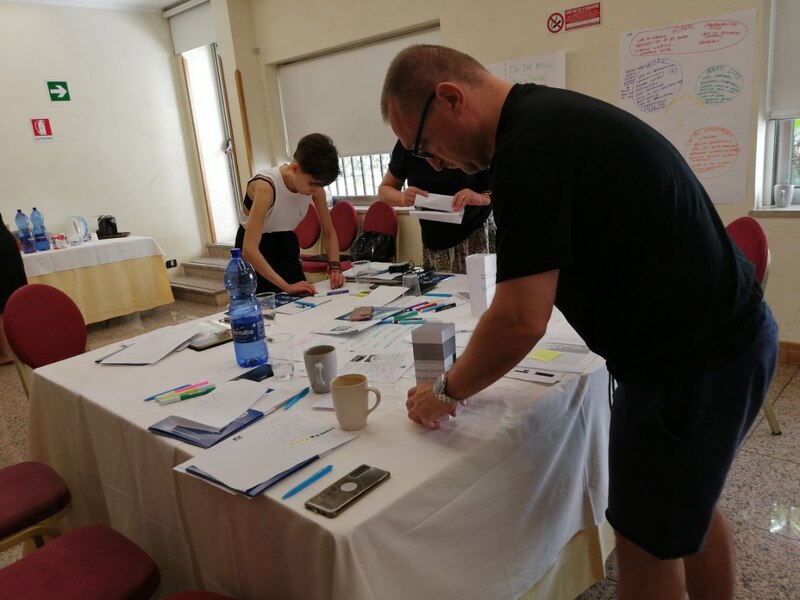
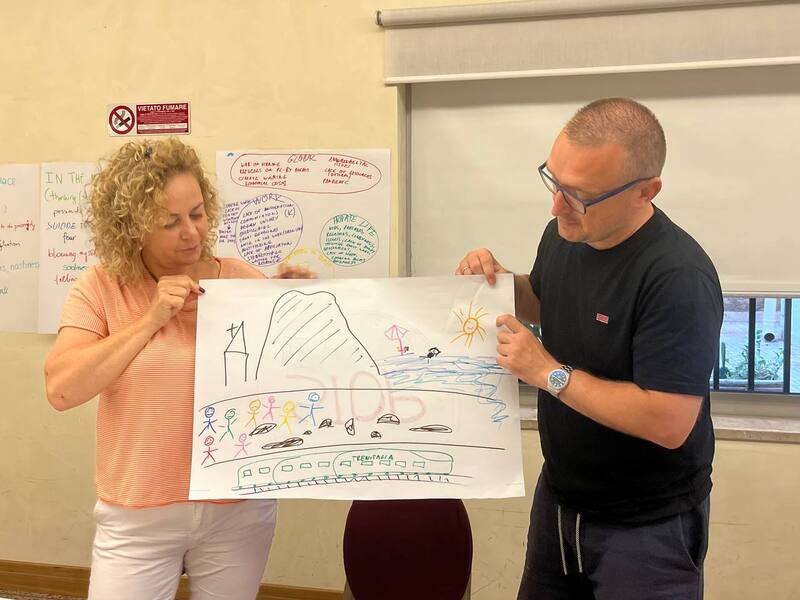
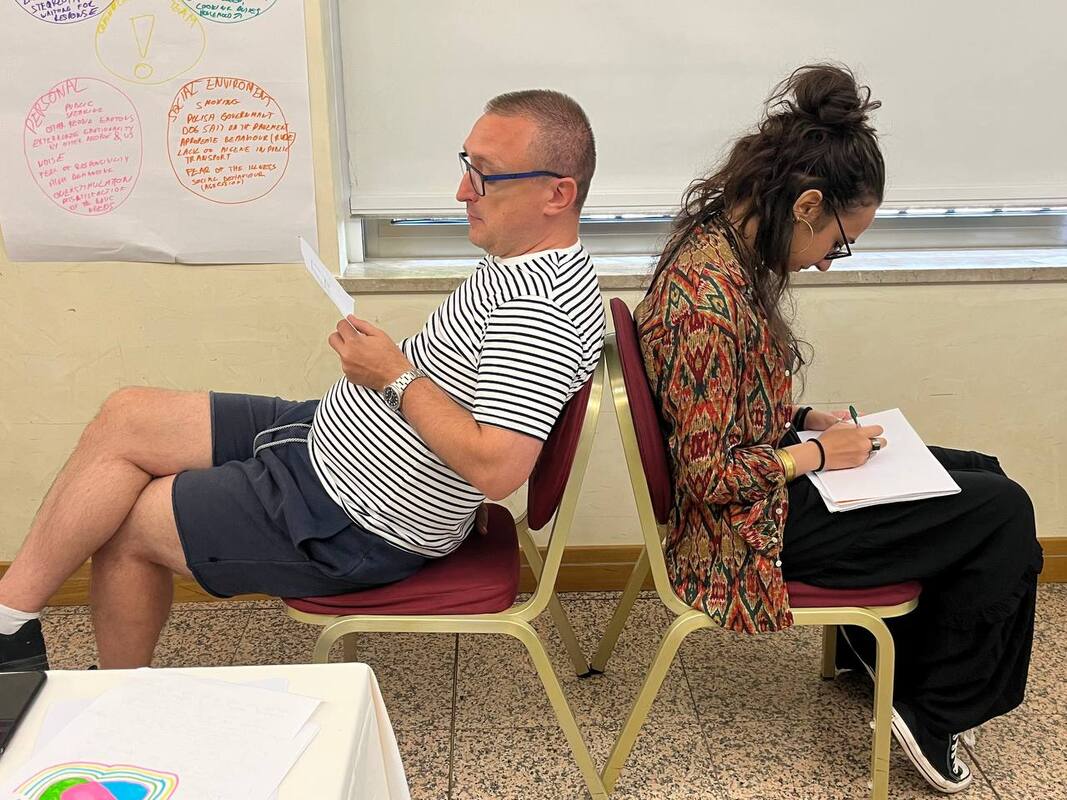
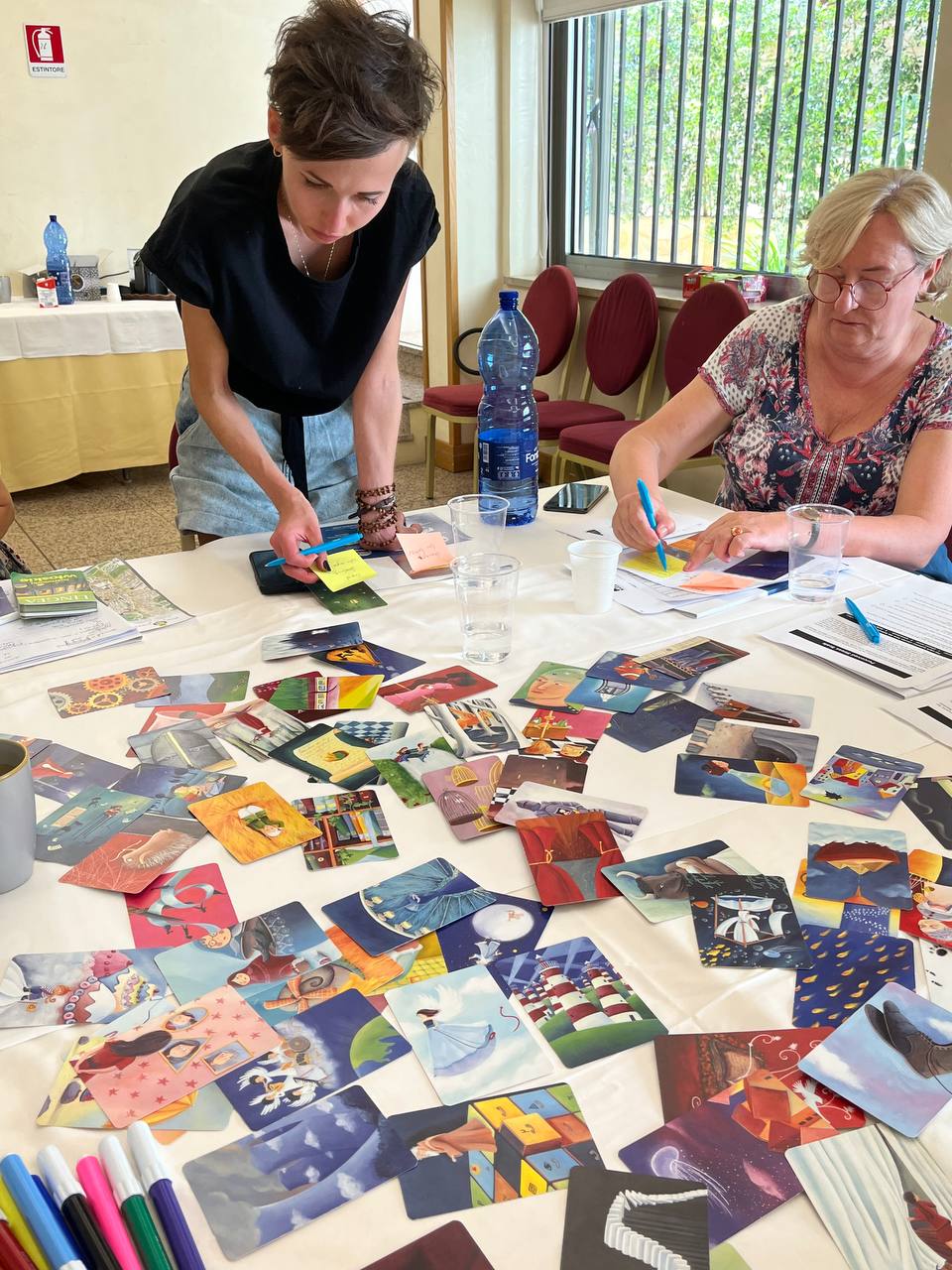
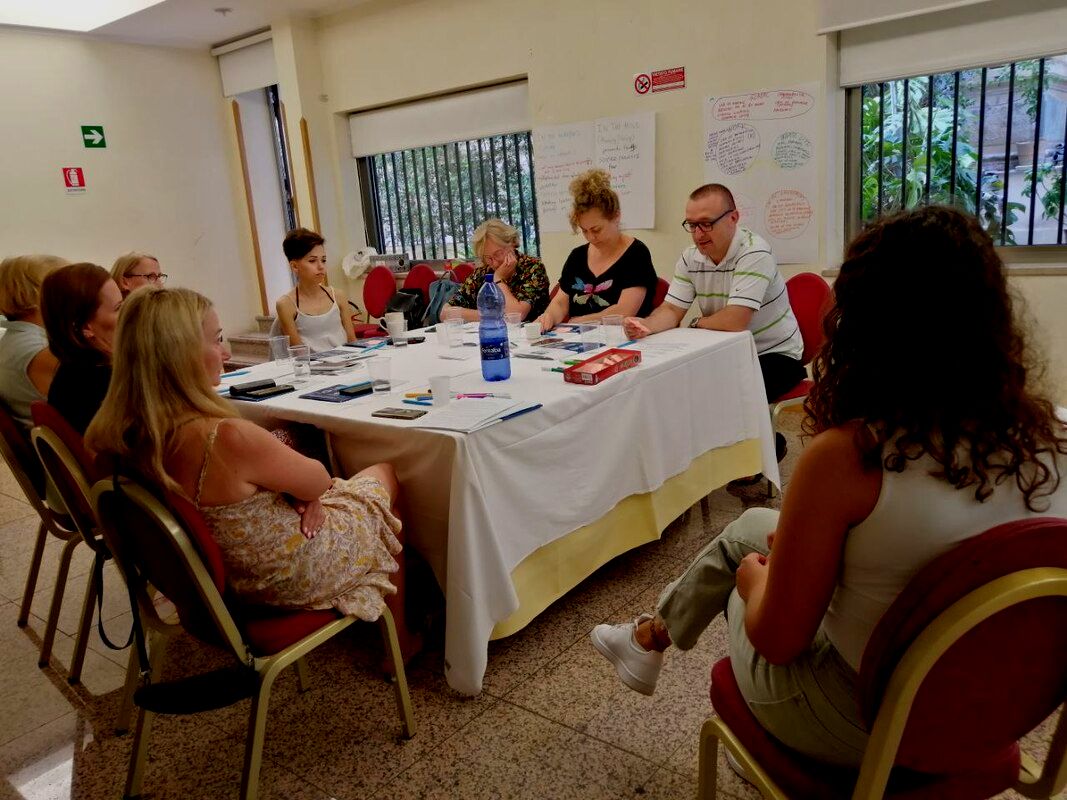
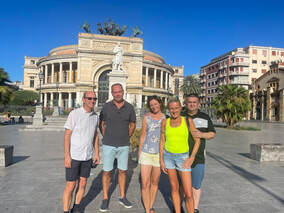
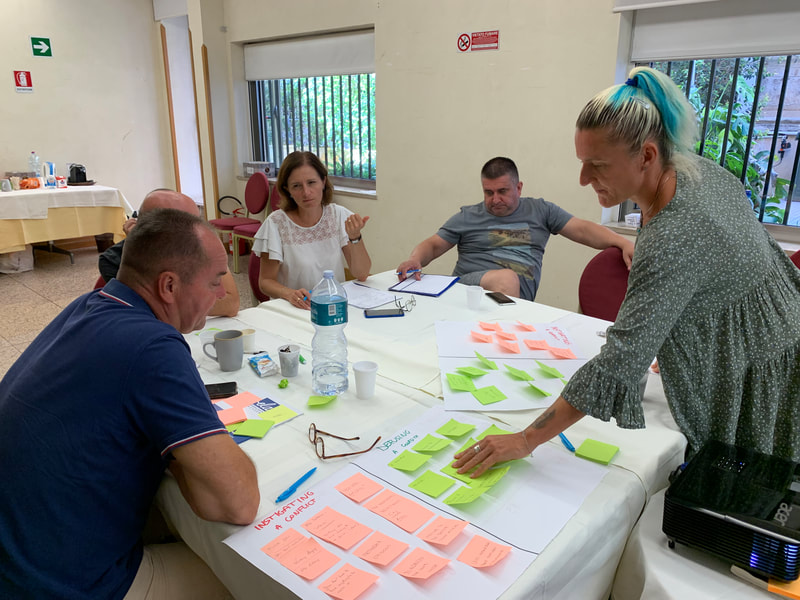
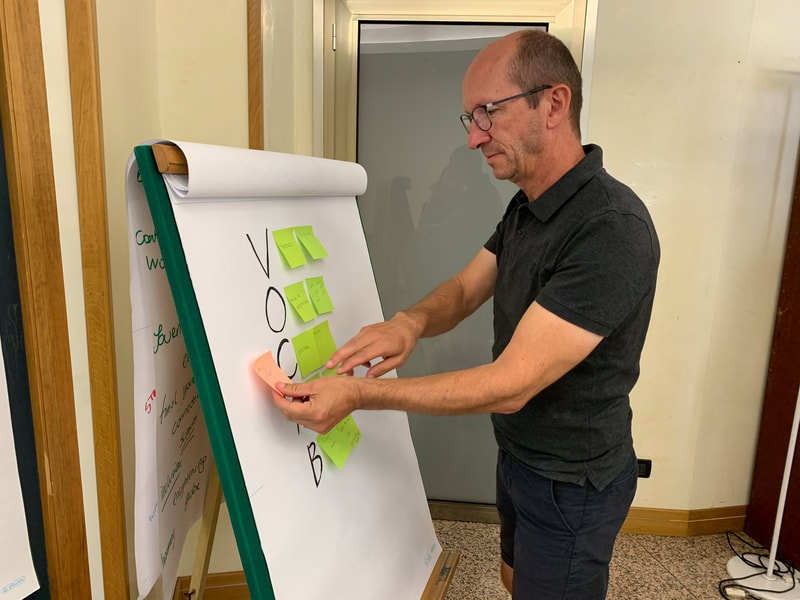
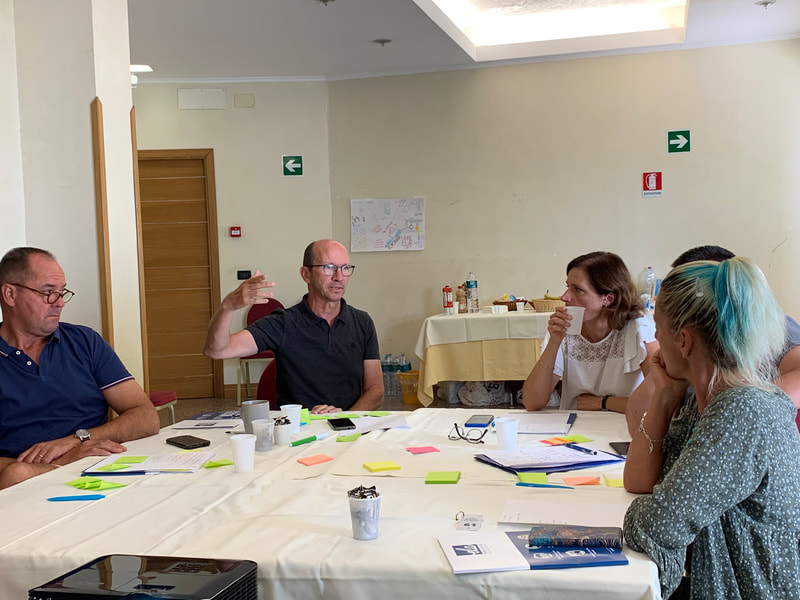
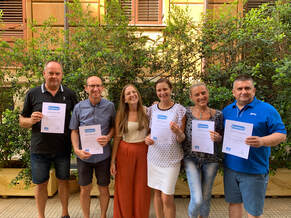
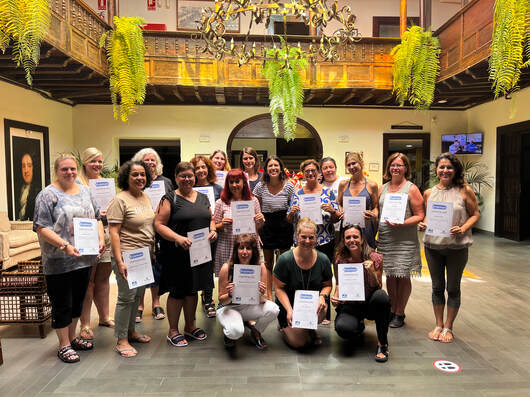
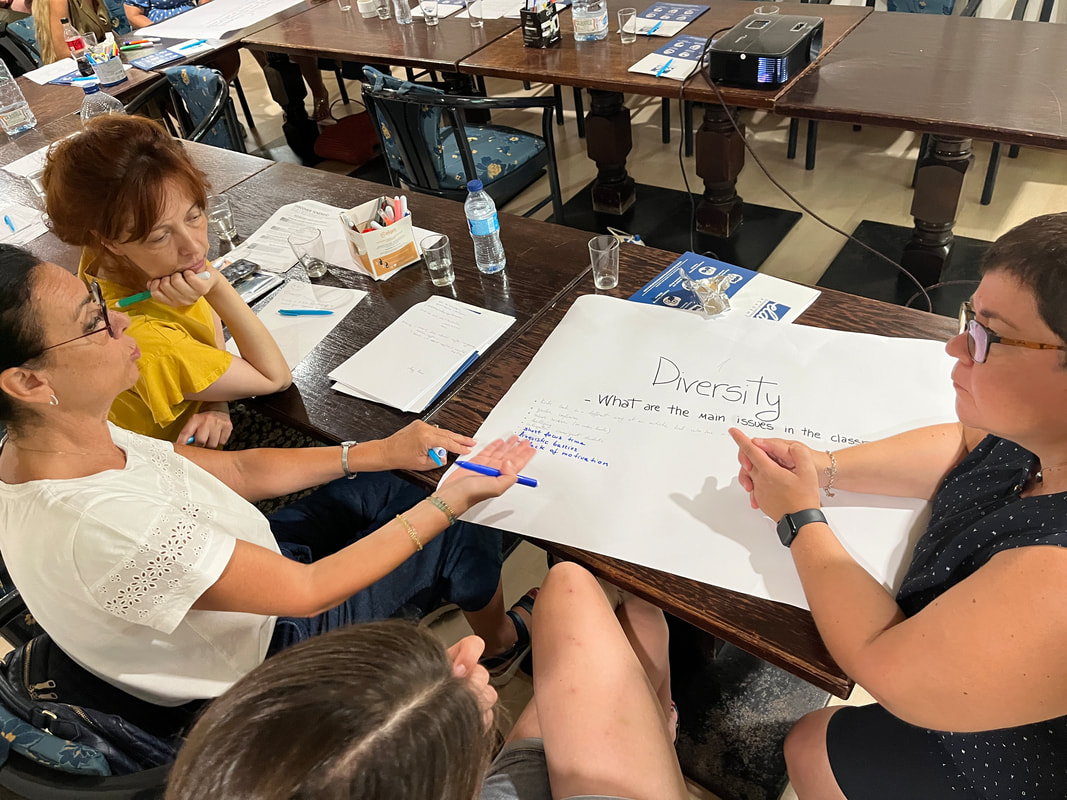
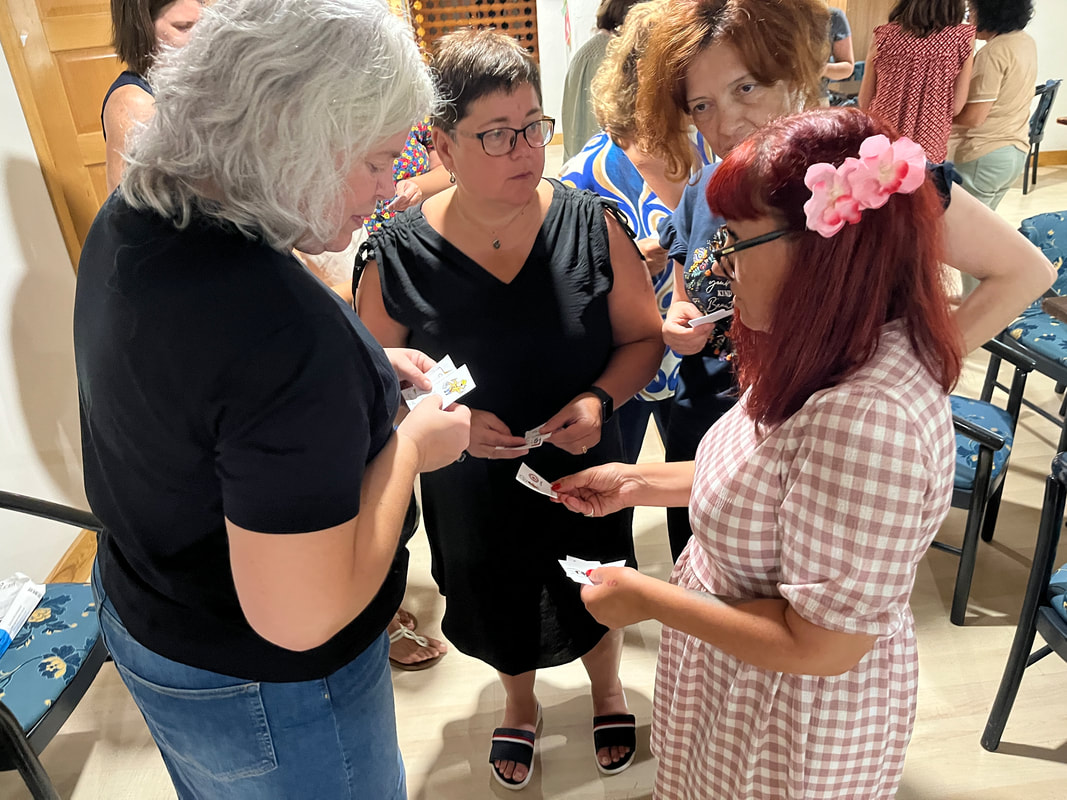
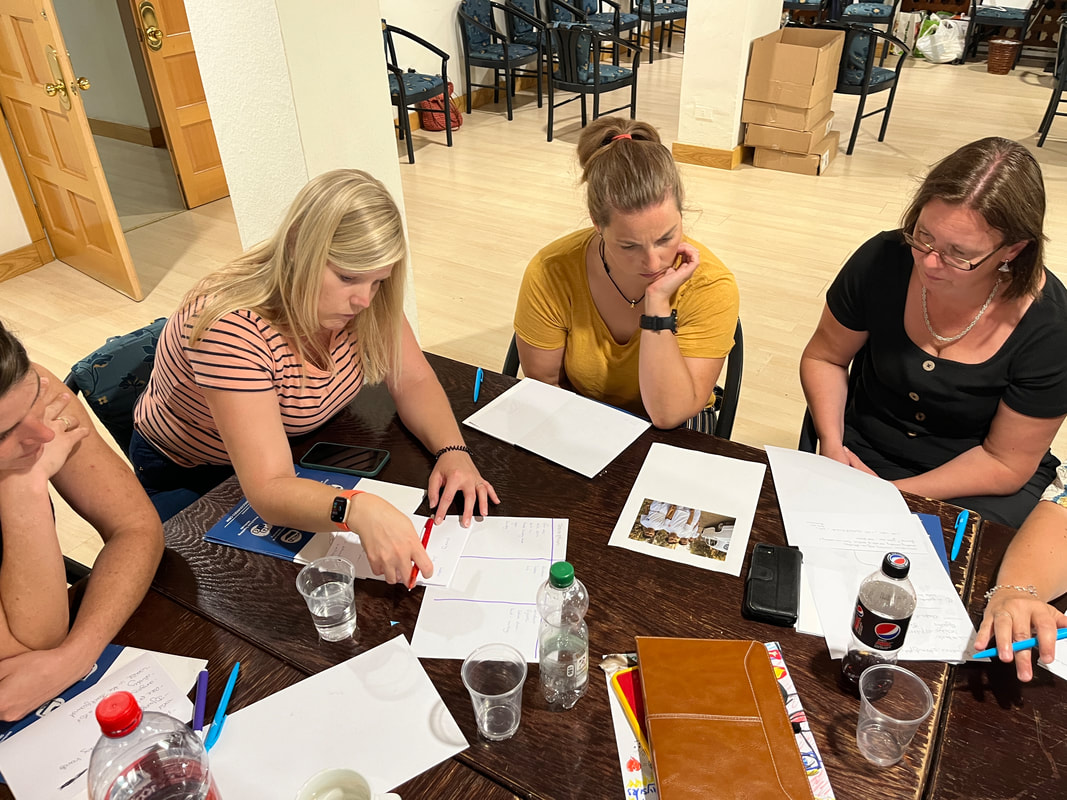
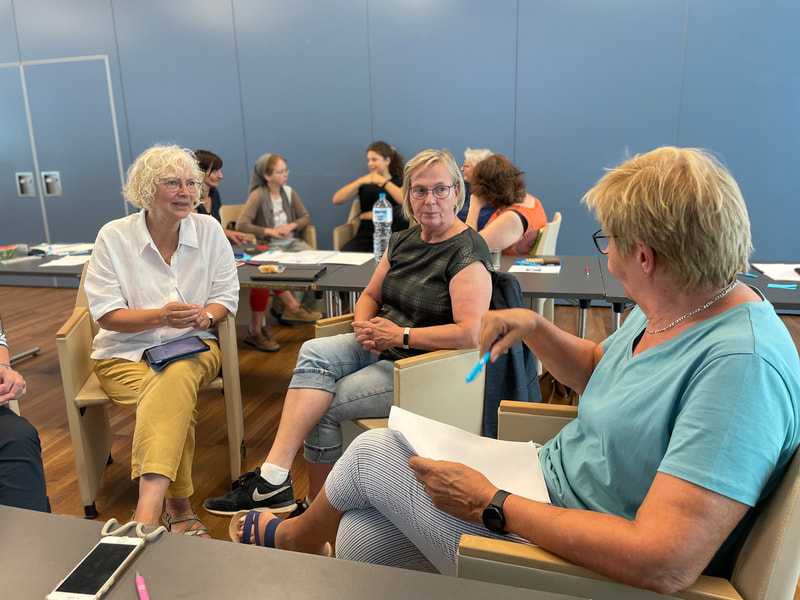
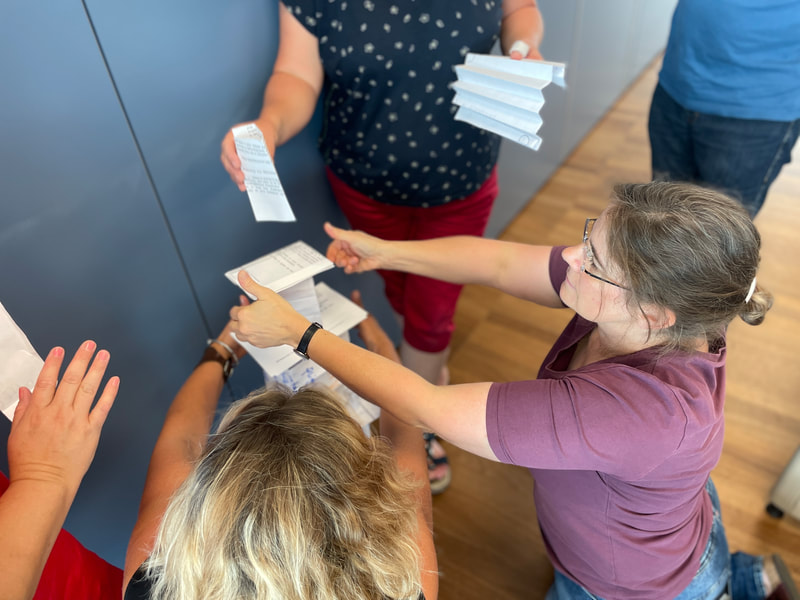
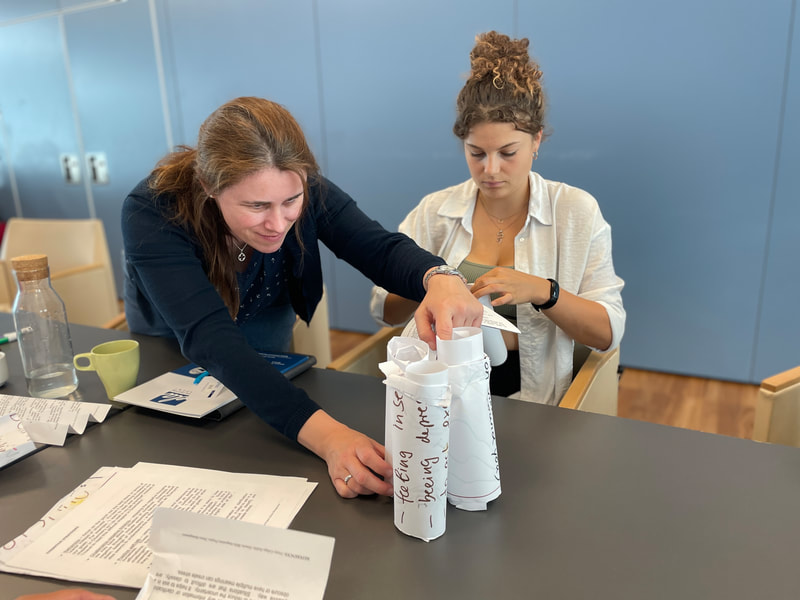
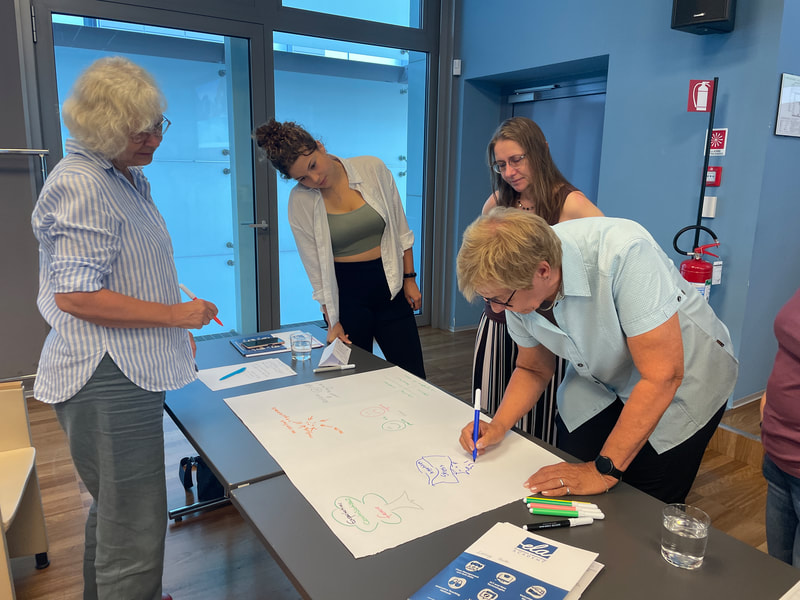
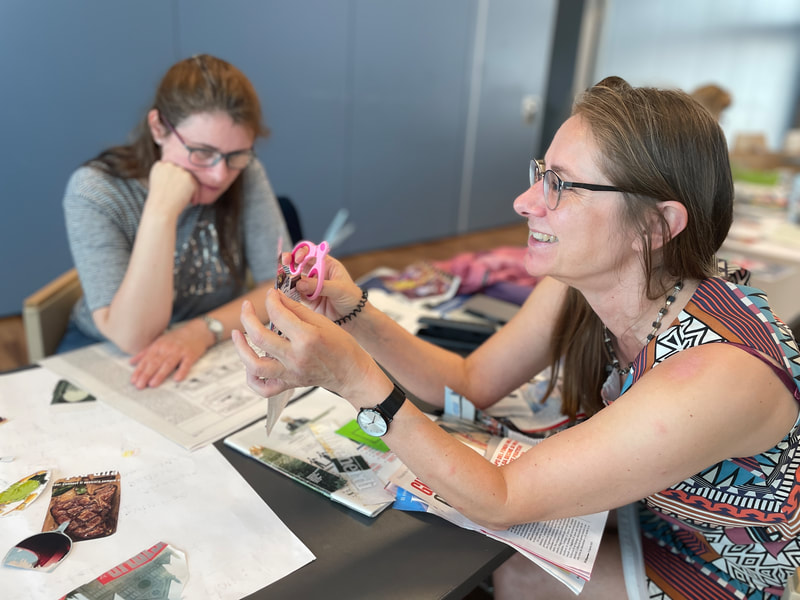
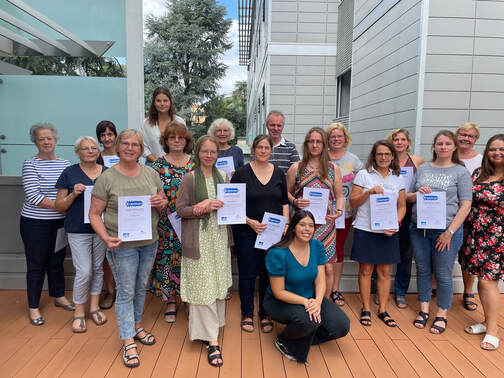
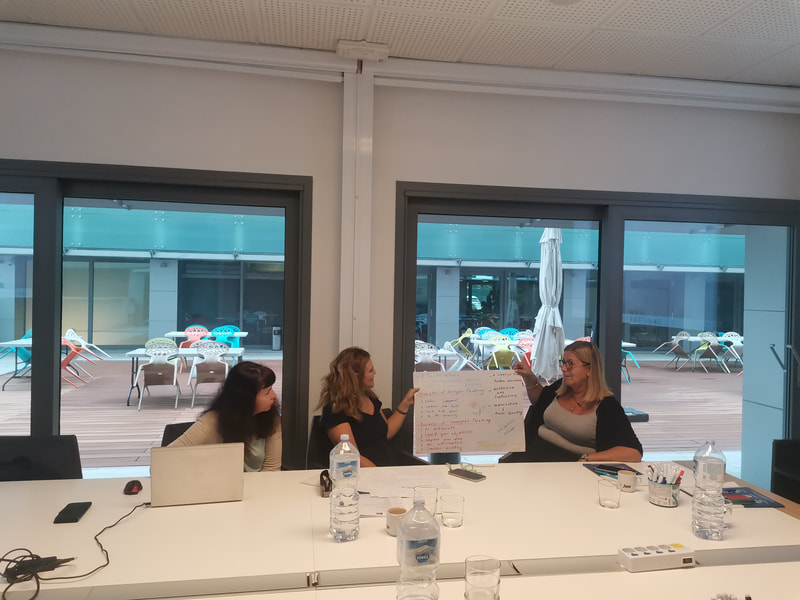
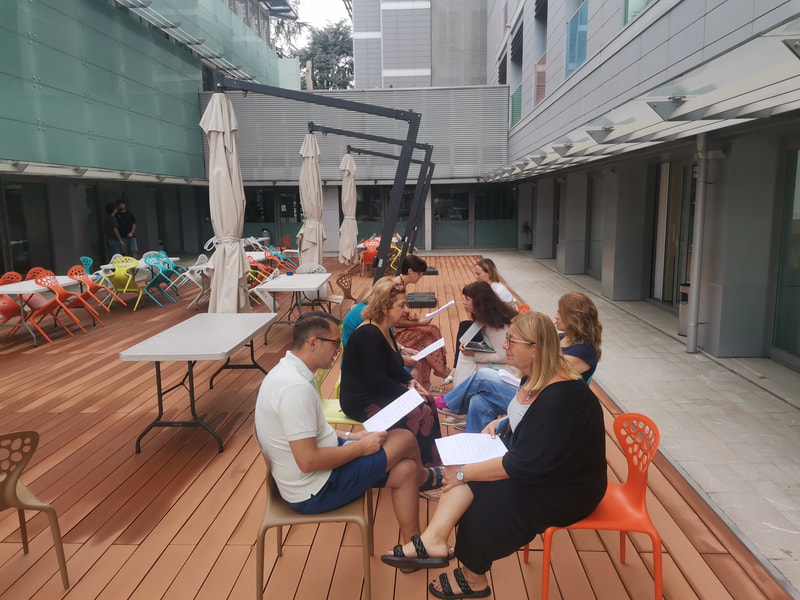
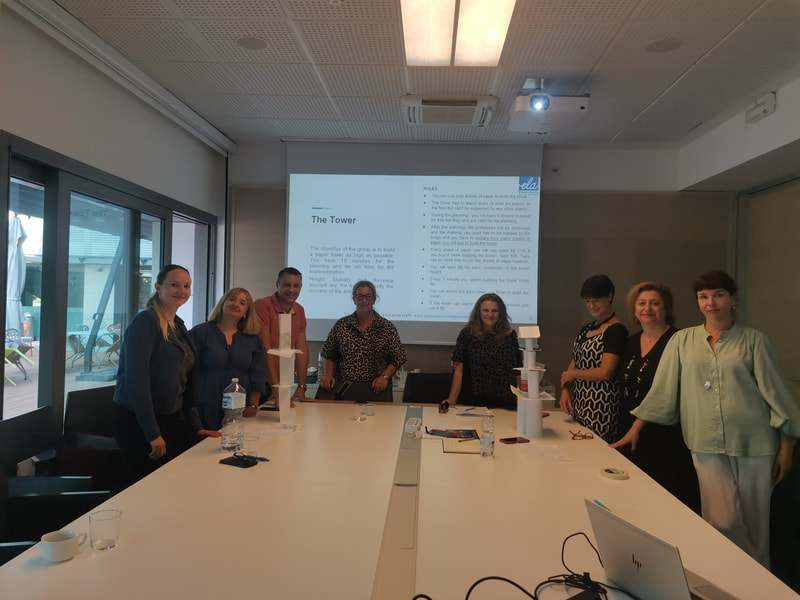
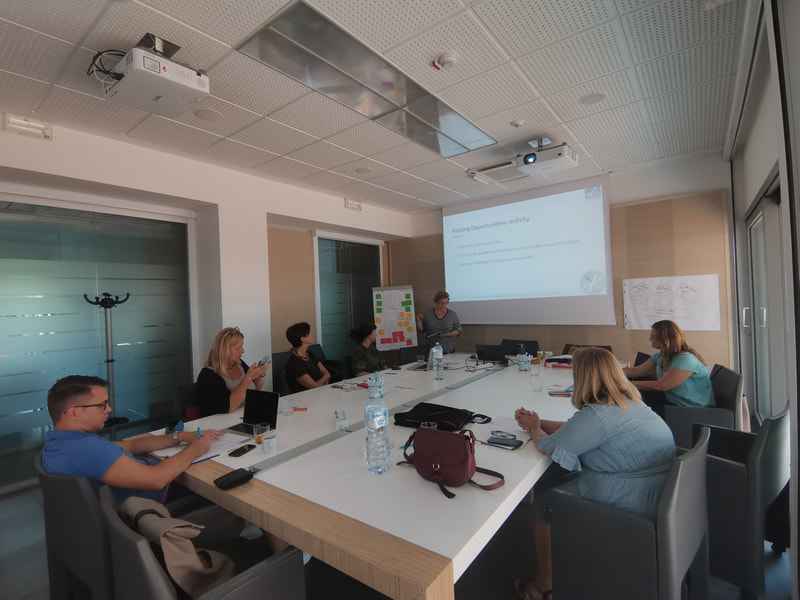
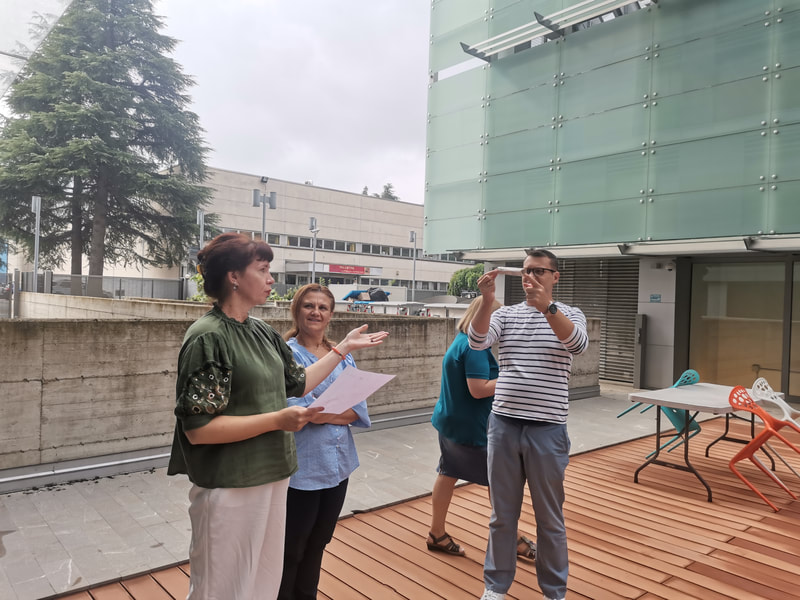
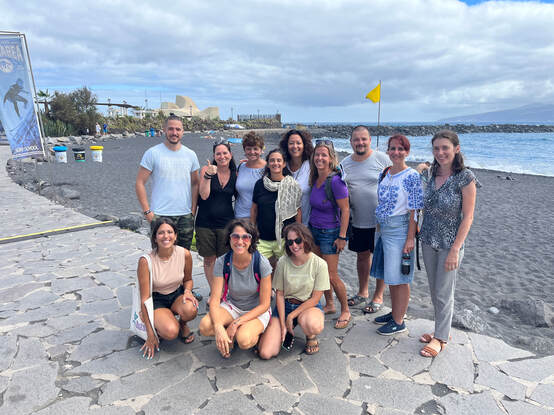
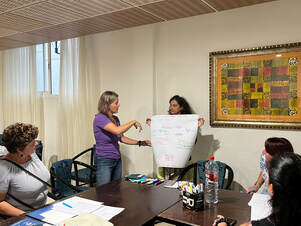
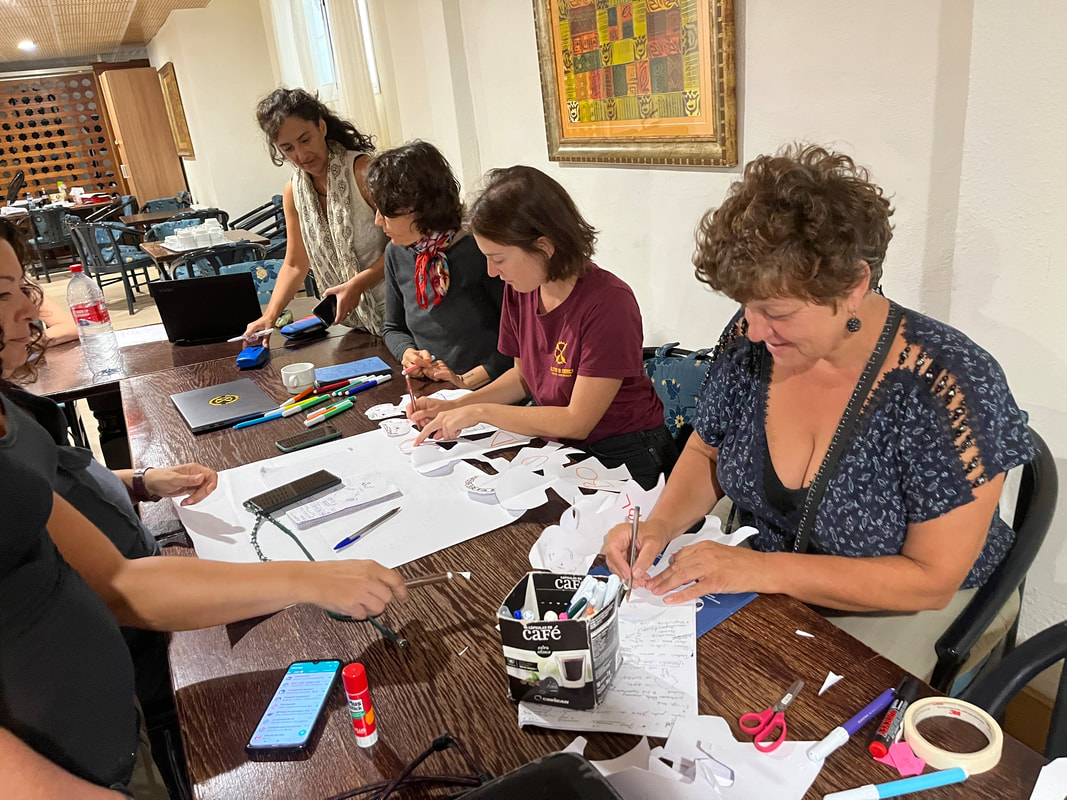
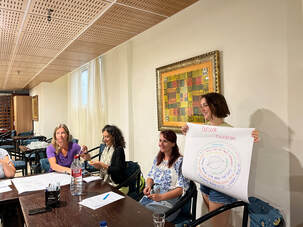
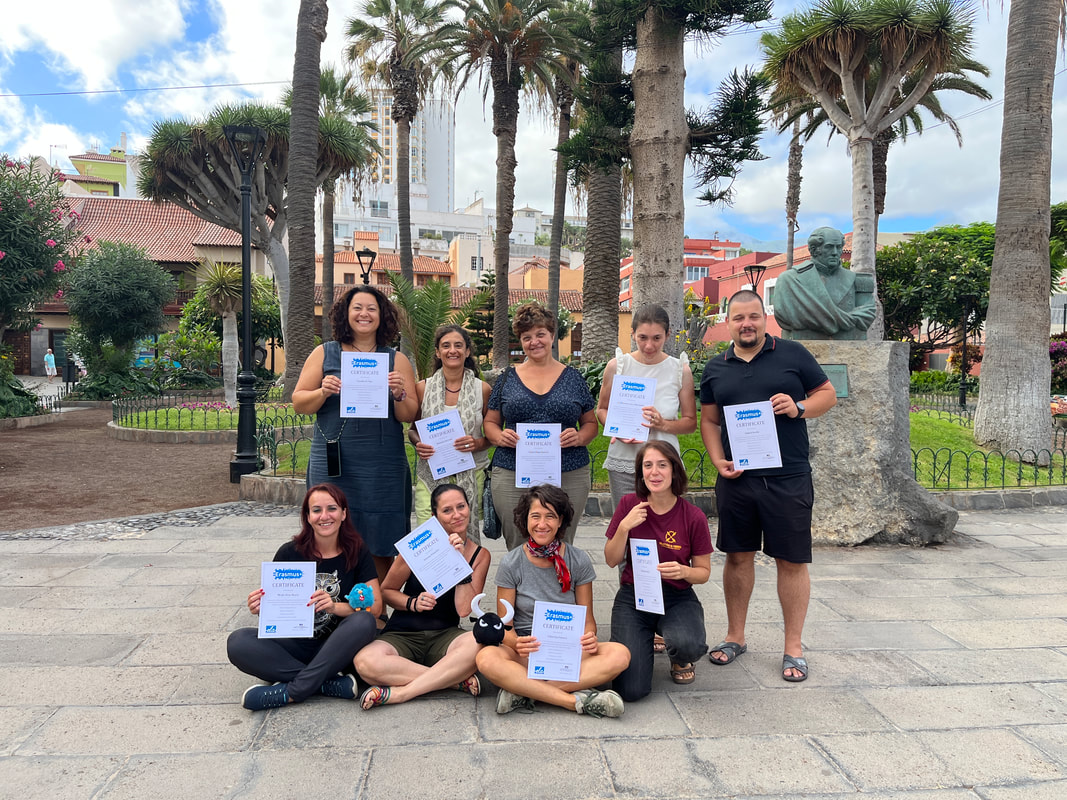
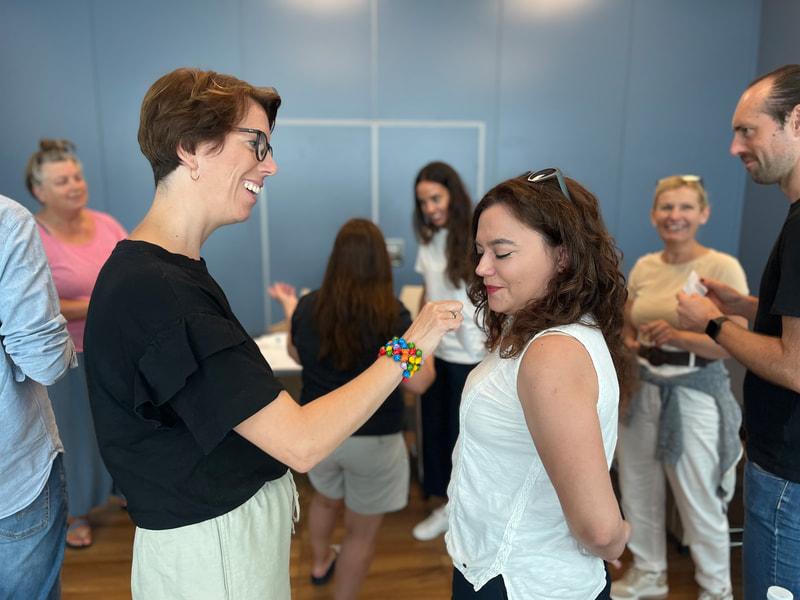
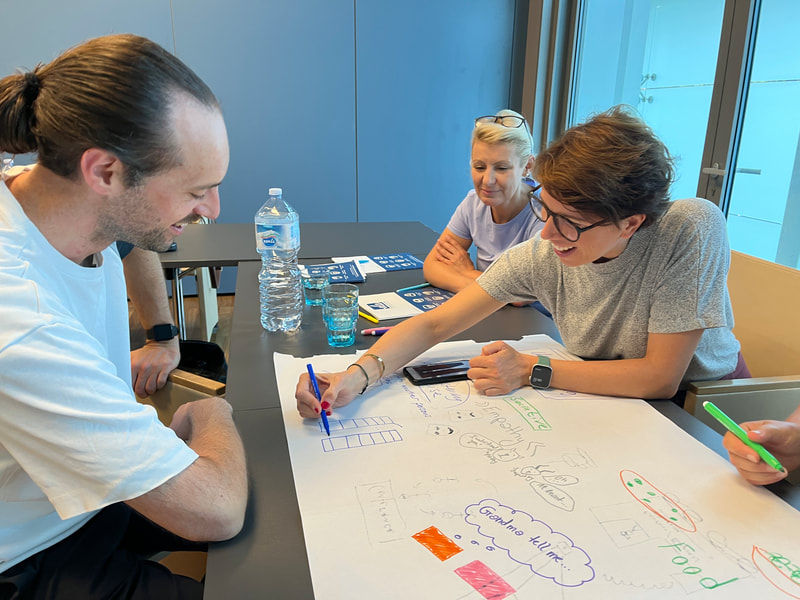
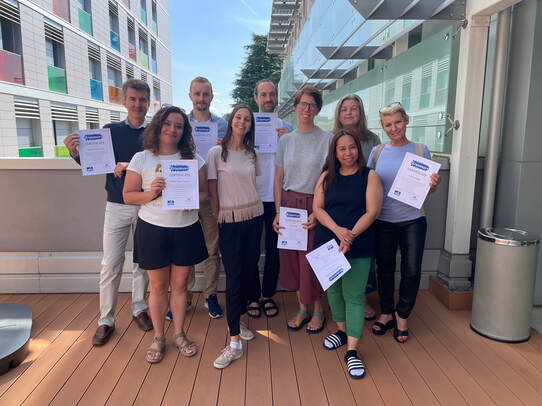
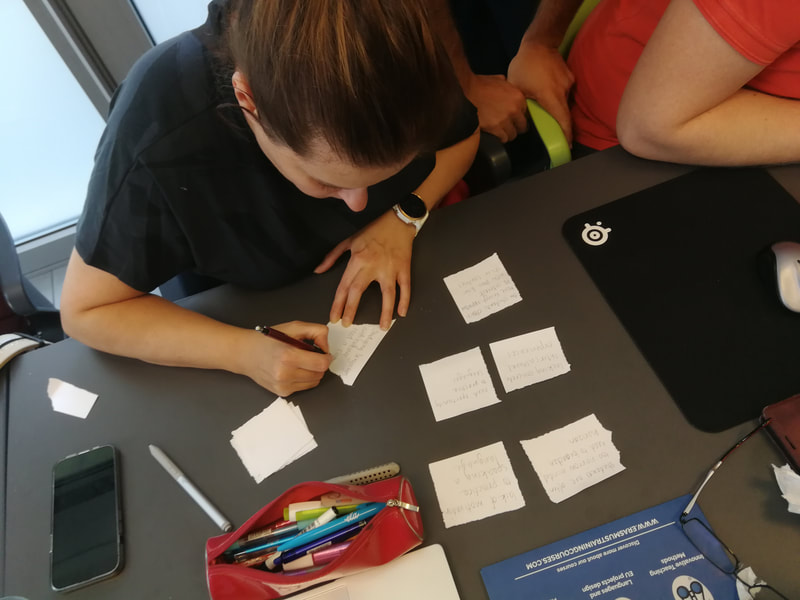
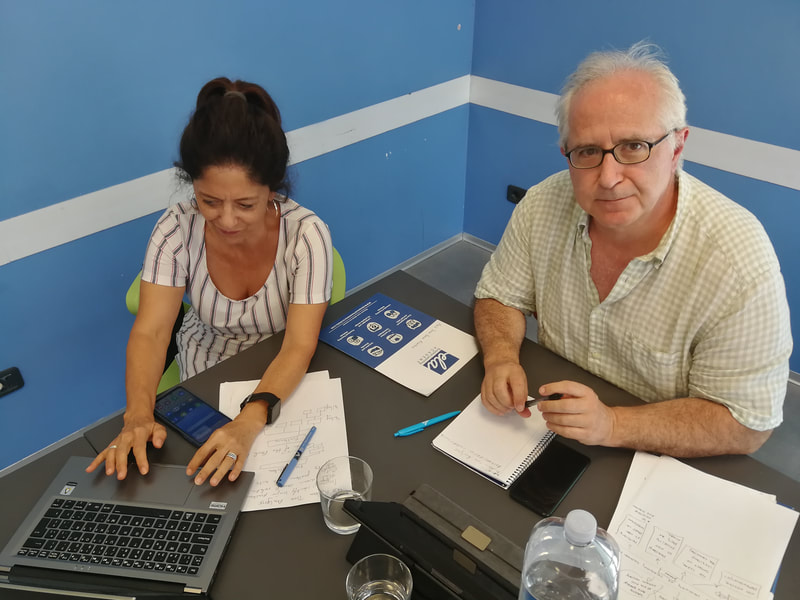
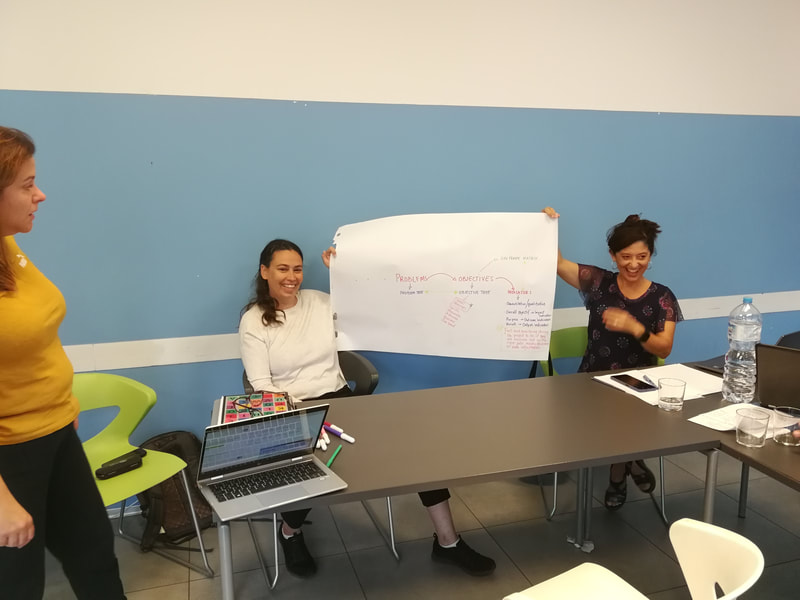
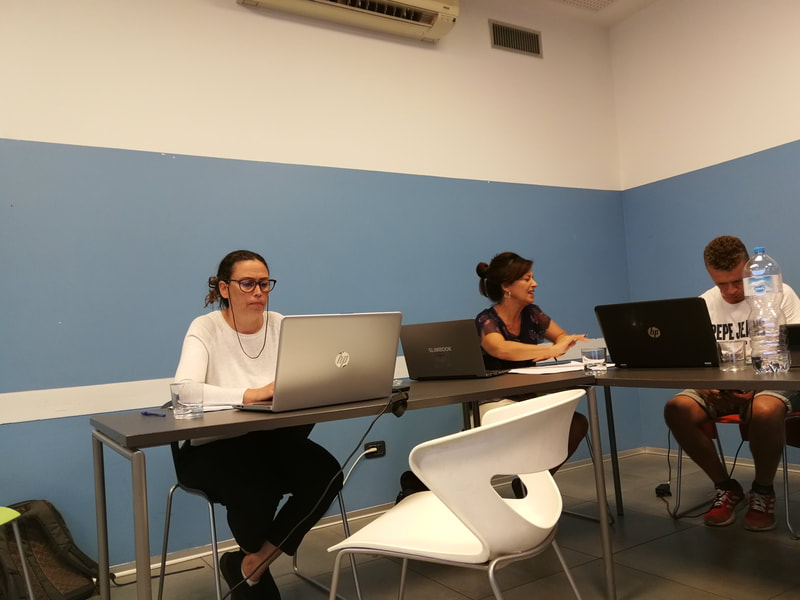
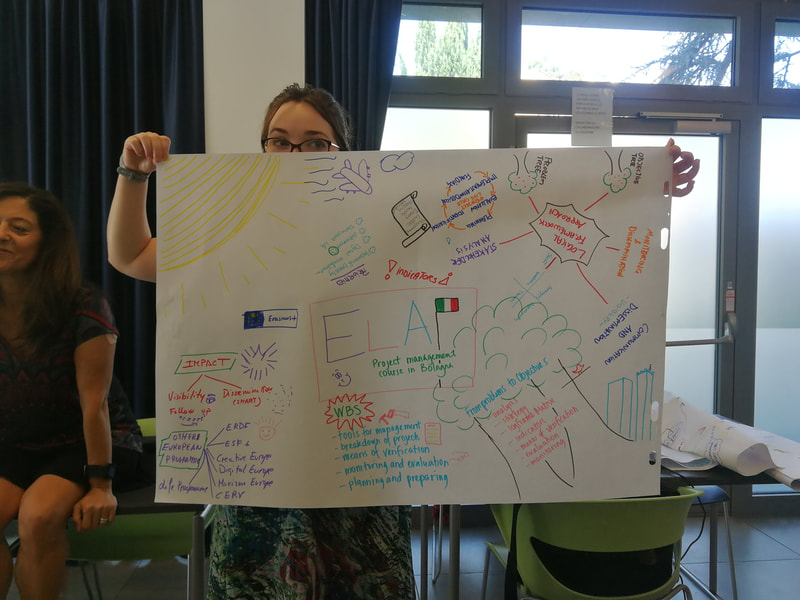
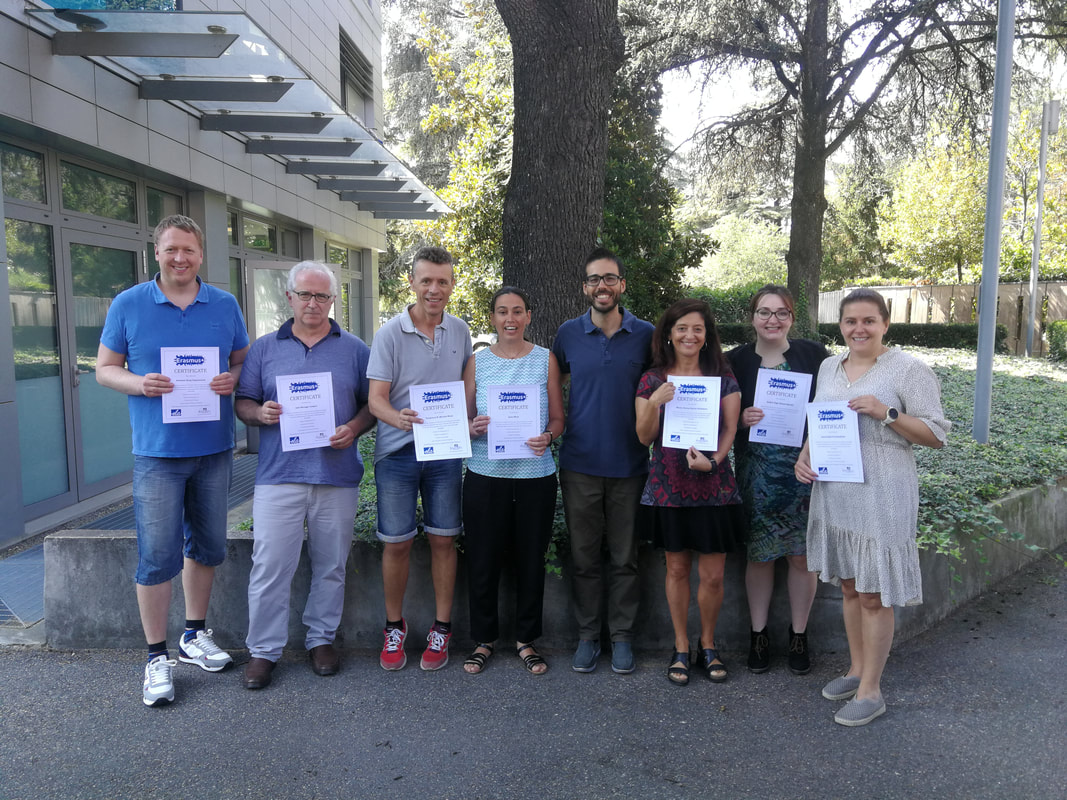
 RSS Feed
RSS Feed









